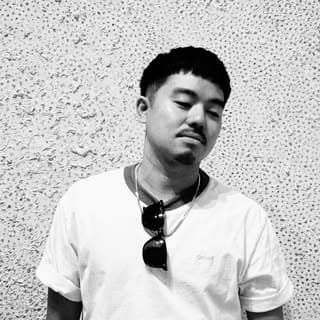
The debate over AI in music keeps circling the wrong question. As machine-made music fills the air, the gap between sound and soul grows wider, and genuine human creativity starts to feel like the rarest instrument of all. What’s unfolding now is a split within the industry. With AI poised to dominate functional, high-volume sound, human artists turn their focus to work that resonates on a deeper level.
For an expert's take, we spoke with Daigo Kusunoki, Founder and CEO of SOUNDRAW Inc., a Tokyo-based startup rethinking how AI makes music. In an industry mired in lawsuits over unlicensed training data, his stance is straightforward: the future of music must be ethical. By licensing data from copyright holders, AI can coexist with human artists, Kusunoki says. But eventually, the flood of machine-made music will force the market to split in two.
Kusunoki sees a clear divide ahead. Here, AI is built to own the "low-level" tier of functional music: the endless stream of background tracks and ad jingles that fuel digital life. What it can’t replace, however, is the human story behind a song. For him, that's what will become the new measure of value. "The market will separate into two tiers. AI will take over the low-level content, like background tracks for short videos, but the high-level content will remain the domain of human creativity."
-
Heart over hardware: The more powerful the tools become, the more they need a human touch to mean something, Kusunoki explains. "AI will be able to generate unlimited songs, 24/7. That's why the key to making something new will be injecting human essence into the technology. It is essential to add a person's real story, character, and personality to the creative process."
 AI will be able to generate unlimited songs, 24/7. That's why the key to making something new will be injecting human essence into the technology. It is essential to add a person's real story, character, and personality to the creative process.Daigo Kusunoki - Founder and CEO | SOUNDRAW Inc.
AI will be able to generate unlimited songs, 24/7. That's why the key to making something new will be injecting human essence into the technology. It is essential to add a person's real story, character, and personality to the creative process.Daigo Kusunoki - Founder and CEO | SOUNDRAW Inc.In turn, the new paradigm stands to challenge the industry's traditional power structures, Kusunoki continues. As AI tools put professional-quality production into the hands of anyone with a laptop, the old gatekeepers are losing their grip. Record labels shrink, creators rise, and the rules have yet to catch up, he advises.
-
Tag, you're it: For the two-tier system to work, however, transparency is key. Especially as AI-generated songs move closer to topping the charts, Kusunoki explains. "Music created entirely by AI should carry an AI tag on streaming platforms. There needs to be a clear line between human creativity and pure algorithmic output; otherwise, listeners won’t know what’s real and what’s not. It’s the same transparency issue we see playing out on social media."
So where does that leave human artists? As AI turns technical skill into a commodity, Kusunoki encourages creators to double down on what machines cannot replicate: originality, emotion, and personality. In his vision of the future, AI handles the volume, while humans bring the voice. "Artists must adapt to the AI era. It will no longer be enough to have the technical skill to make good sounds, because AI will take over that. Instead, artists will need to focus on a different set of skills centered on originality and personality, the very human qualities that will become truly important."
